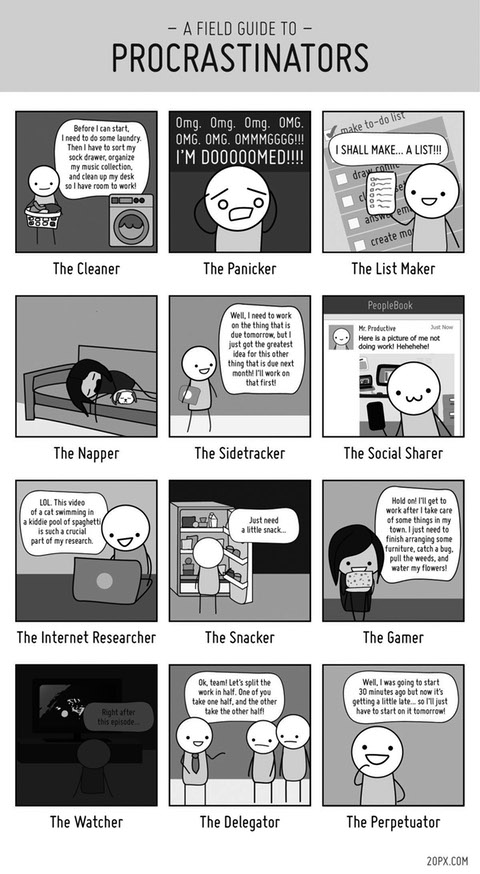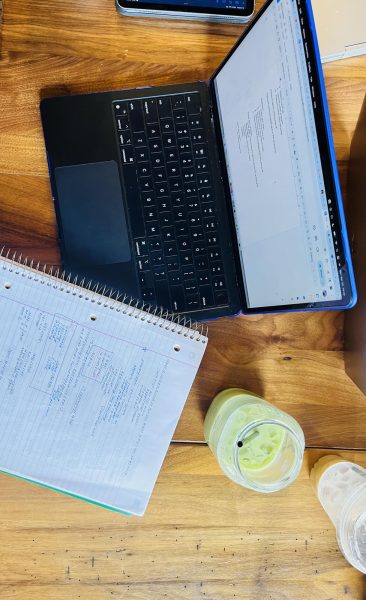Procrastination worst habit to form
Illustration by Angela Liao/20px.
“I’ll do it later,” is a thought that has occurred to probably every college student at one point or another, and I’m certainly no exception.
It’s clear procrastination is a threat to obtaining desired grades, but it still seems difficult to eradicate.
Part of the problem is that in order to properly address a problem, you need to first look at the causes, and when it comes to procrastination, there are so many.
It depends on the individual. Some people tend to put off studying because they have legitimate things they need to do (maybe a result of over-commitment or poor time management skills). Some people have difficult homework and sometimes dread facing it.
In my case and many other’s, the root cause is that I just get distracted.
For example, I sit down to do homework, and suddenly I start thinking about what might happen next on “Game of Thrones,” or what the name was of that new song I heard recently, or really pretty much anything that has nothing to do with what I’m supposed to do at that time.
Of course, that’s assuming that I even sit down to do homework. Most of the time, I just have the knowledge in the back of my mind that I have things I’m supposed to do without ever doing those things or at least not until the last possible minute.
Though the reasons may be different the end result is always the same, missed deadlines, lower grades and even more work than you had to start with.
I know what it is like to think that you’re the exception to the rule. When I first started college, I was the kind of guy who would wait until the night before or even the morning of to write an important paper. When I started, that actually worked.
One of the unconsidered downsides of procrastination is, if you have a habit of constantly procrastinating but still succeed, the illusion that you can do well in life by only putting in the minimum amount of effort.
As a junior, my lethargy does not serve me as well as it used to, but now I have formed a habit.
So even if procrastination worked for you in the past or it still works for you now, it can be dangerous to your potential success, because it can create a habit of only putting in the minimum amount of effort.
This is not a useful skill or habit in the professional world, and it will actually work against you rather than help.
What steps can you take to eliminate procrastination? Speaking as someone who is still struggling, I can’t tell you how to eliminate it, but I can tell you how to reduce it.
The first step is to set realistic goals. If you’ve ever tried to break a bad habit before, you know it’s not as easy as just telling yourself not to do something anymore. You have to start small, maybe start with a specific class or even a specific assignment and decide to not delay.
Another method is to have a set time every day meant specifically for studying. My problem is often not that I don’t want to do it, it’s that I often forget to do it because I get so caught up in everything else.
Having a set time every single day just for studying will also help establish a good habit of actually getting things done. You don’t need to plan every single second of your day, but setting aside a particular time of day every day can help you at least remember what needs to be done.
Force yourself to just sit down and do it, instead of complaining about it.
Michael Rauser is a staff writer for The Dakota Student. He can be reached at [email protected].







